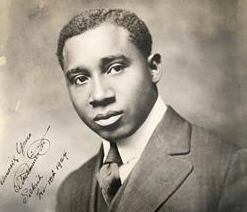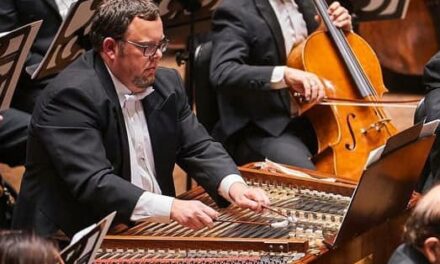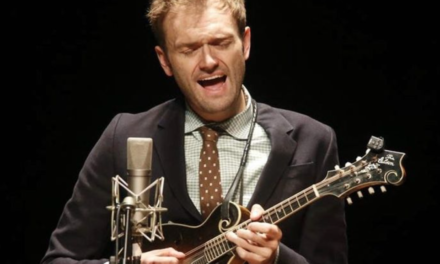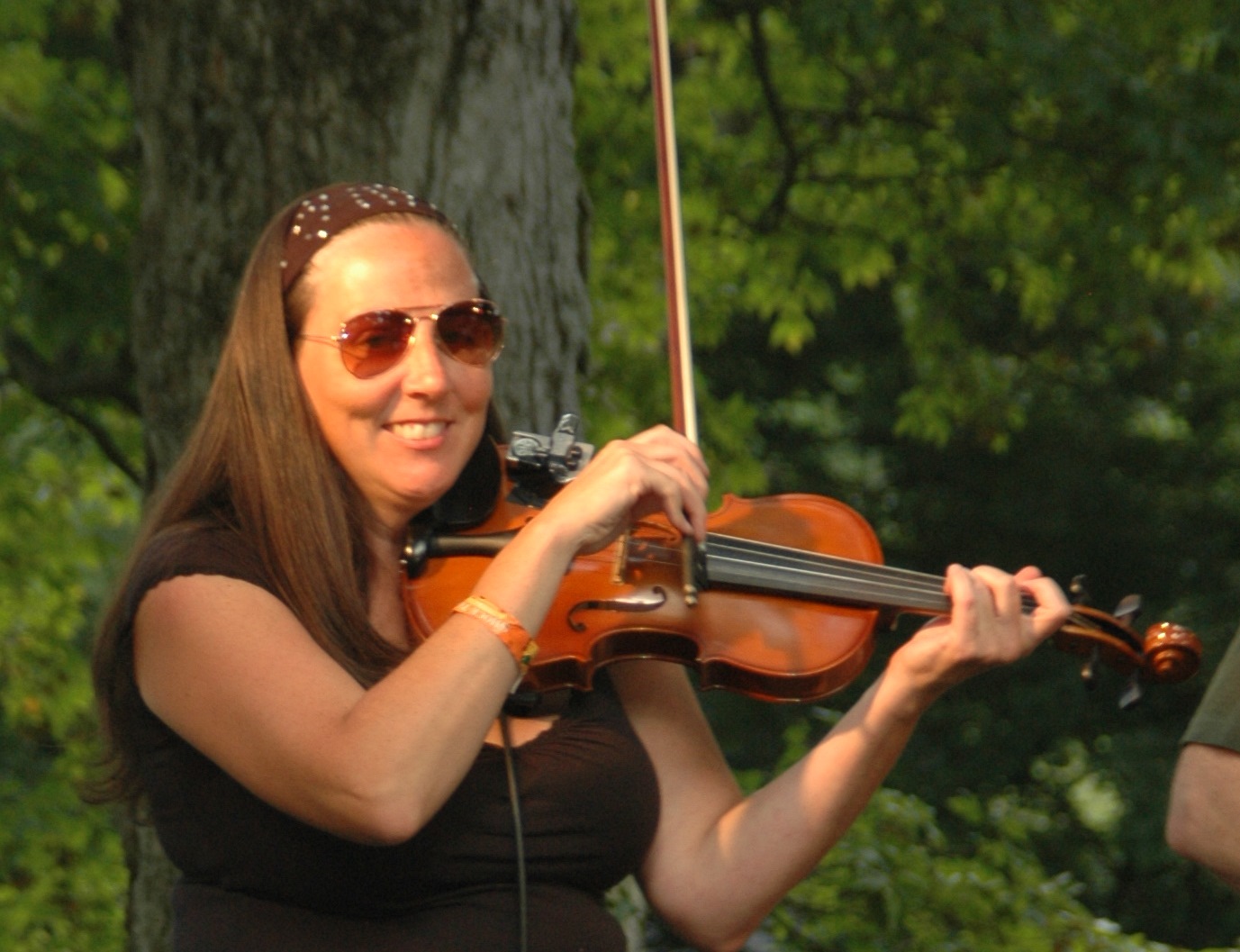Composer R. Nathaniel Dett.
Reclaimed Treasures
Teddy Abrams, conductor
Julia Noone, violin
Marquita Richardson, Kendra Beasley, Ricky Lynn Case, Phillip Morgan, Kyle King, soloists
Louisville Chamber Choir, guest chorus
A review by Annette Skaggs
Entire contents are copyright © 2022 by Annette Skaggs. All rights reserved.
It is not uncommon for great pieces of music to get lost. Sometimes the reasons are from accidents like a house fire, others may have a more unpalatable explanation: prejudice and fear.
As part of a multi-year project, Teddy Abrams and the Louisville Orchestra are resurrecting some lost works from Jewish and Black composers and examining how they may intersect with one another. I cannot state how important it is to hear these compositions and to listen to the composer’s vision of sound that is often drawn from their own studies, environments and struggles.
In Saturday evening’s concert, titled Reclaimed Treasures, our Louisville Orchestra introduced us to three composers, two of Jewish descent and one of African. Teddy explained that the stories of the Jewish people and those of African heritage have striking parallels, such as an exodus from one’s homeland and the use of the Old Testament as a muse for writing music. This evening’s program certainly highlighted the latter.
Ernest Toch, of Austria, was forced to leave due to the Nazi takeover in the 1930s. When he arrived in America, he made his way to the West Coast where he began work as a composer for movie soundtracks and served as a professor of Music at the University of Southern California. Toch also composed greater works on the side, including seven symphonies. In fact, our own Louisville Orchestra commissioned Notturno, a single movement arrangement for orchestra in a three-part form.
While I am not familiar with many Toch compositions, save for a piece called Circus Overture that the Orchestra shared in 2021 that I just absolutely adored, it can be safe to say that Notturno, Op. 77 is representative of a composer who holds great talent and is not afraid to experiment. From the get-go the woods, winds, brass, and singular percussion is doing a really neat thing: a different theme below the strings. The strings act as more of a descant over a thrilling score with the rest of the orchestra. And yes, I did mention a singular percussive instrument, that would be the xylophone. The sincerity and innocence of this instrument within this composition is both heart-lifting and breaking. A highly impactful and enjoyable piece.
Our second composer, Erich Wolfgang Korngold also of Austria, is considered one of the most influential film composers in the history of movies. And like Toch, Korngold’s compositions went way beyond works on celluloid. Having composed concertos, sonatas, trios, quartets and even sextets, Korngold leaned toward works on piano and violin.
Mr. Abrams shared that the Violin Concerto in D Major, Op. 35 is quintessentially Korngold. Within its three movements you can hear many of the composer’s influences, including his own. For example, the first movement, Moderato nobile, sounds like it could be a movie soundtrack. The second, Romance: Andante, had a very deep romantic, schmalzy sound. The third movement, Finale: Allegro assai vivace starts with a quick jolt and finishes as an homage to the America music, a la Leonard Bernstein or Aaron Copeland.
As we know, it is important to lean on the talent and experience of a world-class violinist when tasked with carrying a heavy load such as a violin concerto. Luckily, we were graced with Associate Concertmaster Julia Noone and her stellar interpretation of Korngold’s masterful work.
Save for a few strange note placements in the second movement by the woodwinds, I believe that this performance was quite successful and that the piece should be part of any orchestra’s repertoire.
There are few things that excite me more than to see a stage filled to the brim with musicians: both vocal and instrumental. Such was the thrill of the second half of the program.
Composer R. Nathaniel Dett has been getting some traction lately, at least here in Louisville, as I’ve heard at least two pieces of his, in recent memory, from two different companies. I, for one, am glad for it. Having been a student at the prestigious Eastman School of Music and Oberlin College, Mr. Dett certainly had some musical chops.
In reading the program notes about the composer, it states that the evening’s selection, The Ordering of Moses, was Mr. Dett’s Master’s thesis in Composition at Eastman. Wow! Perhaps it was with this concert piece that set Mr. Dett’s devotion to study spirituals and music of formally slaved Americans.
The Ordering of Moses is the musical journey of Moses and how he led the Israelites out of Egypt and through the Red Sea to freedom. As a clever device, Mr. Dett uses the hymn “Go Down, Moses” as a theme or motif throughout the whole of the work. As the opening notes of what sounds like the familiar hymn “O Pharoah” pours from the oboe, we are transported to a mix of traditional Jewish sounds and Negro spirituals.
I could go into some depth on this composition, but I’d rather keep it a bit tighter and focus on the musicality of the guests who graced the Whitney Hall stage.
There is something about Concertmaster Kent Hatteberg that just makes talented singers want to be under his experienced guidance. Mr. Hatteberg assembled an impressive group under the banner of the Louisville Chamber Choir to serve this evening’s program. Looking into the mass of faces, I could see diversity of age and race, including one of our soloists, Kyle King. While the chorus, on the whole, did a remarkable job there were times that there was unevenness in the vocalizations…and not from where you may think….it was actually more in the tenors than sopranos or altos.
As far as the vocal soloists there was a heavy load for tenor Ricky Lynn Case, whose presentation was set squarely in a noticeably comfortable home, and baritone Phillip Morgan, who at the beginning had a lot of vibrato, but came to a clearer vocal focus and gave much credence to the words and notes being performed. Marquitta Richardson’s soprano line was certainly high and mighty, but there were times that as she would reach the higher pitches, there would be a swooping that seemed uncharacteristic. On the other hand, mezzo soprano Kendra Beasley had my rapt attention. Bold and pinpoint accuracy, a truly buoyant delivery.
In Teddy discussed that this piece, which premiered 85 years ago, was later subjected to religious or racial prejudice when broadcast live before being yanked from the airwaves “due to already committed programming”, it is a master work that is deserving of being performed and should be placed in repertory as a part of our collective musical history.
We can learn a lot from those that came before us and even those that are in our present.
Bravi Tutti!
Reclaimed Treasures
April 30, 2022
Louisville Orchestra
Kentucky Performing Arts
501 West Main Street
Louisville, KY 40202
Louisvilleorchestra.org
Annette Skaggs is heavily involved as an Arts Advocate here in Louisville. She is a freelance professional opera singer who has performed throughout Europe and in St. Louis, Cincinnati, Boulder, Little Rock, Peoria, Chicago, New York and of course Louisville. Aside from her singing career, she has been a production assistant for Kentucky Opera, New York City Opera, and Northwestern University. Her knowledge and expertise have developed over the course of 25+ years’ experience in the classical arts.





